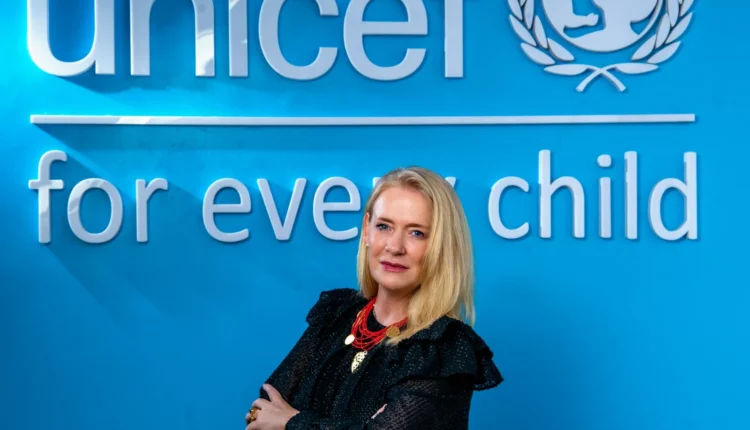The United Nations Children’s Fund (UNICEF) has described Female Genital Mutilation (FGM) as a grave violation of the rights of girls and women, stressing that the practice must be eliminated across Nigeria.
The Chief of UNICEF, Lagos Field Office, Celine Lafoucriere, made this known on Wednesday in Benin at a two-day Media Dialogue to Support Advocacy to End FGM in Nigeria.
The workshop was organised by UNICEF in collaboration with the Oyo State Ministry of Information and Orientation.
Lafoucriere revealed that nearly 20 million women and girls in Nigeria have undergone FGM, placing the country third globally.
“This is a huge number that we cannot be blind or deaf to,” she said.
She noted that although outlawed, FGM remains prevalent in many Nigerian communities due to myths and traditions. According to her, such practices must be recognised as harmful and abolished.
“No cultural or traditional practice should compromise girls’ health, rights, or future prospects,” she declared.
Lafoucriere, however, expressed optimism that collaborative efforts are driving progress.
“The good news is that change is possible, and change is happening through collaborations and initiatives like the Movement for Good, which is led by the federal government of Nigeria in collaboration with UNICEF.
“Millions of Nigerian girls, boys, men, women, aunties, uncles have pledged to protect girls from being cut. Communities are speaking out.
“Survivors, very crucially, are leading the way, and young people are demanding a better future. And this is where the media comes in,” she said.
She urged journalists to use their platforms to amplify survivors’ voices, challenge harmful practices, and inspire families to choose differently for their daughters.
“Use your reach; use your platforms and your creativity to ensure that every single girl in Nigeria grows up free of female genital mutilation, free of that fear, free of that harmful possibility,” she added.
Also speaking, UNICEF Communication Officer, Lagos Field Office, Blessing Ejiofor, said the workshop was aimed at strengthening advocacy against FGM across the country.
She noted that although campaigns have reduced the prevalence, advocacy must continue until the practice is completely eradicated.
“No woman should undergo the harmful process of FGM,” she said, adding that the practice is now a criminal offence in Nigeria.
Permanent Secretary, Oyo State Ministry of Information, Mr. Rotimi Babalola, said the workshop reflected the state government’s commitment to children’s welfare.
Babalola noted that advocacy was critical and that the media must play a central role in the campaign.
“We still have a lot of work to do; we have done several advocacy programs; it’s now the turn of the media.
“We have a lot of work to do on this campaign. Most of us have been in this campaign. We need extra efforts to totally eliminate FGM,” he said.
He urged media practitioners to sustain their collaboration in ensuring the complete elimination of FGM nationwide.


